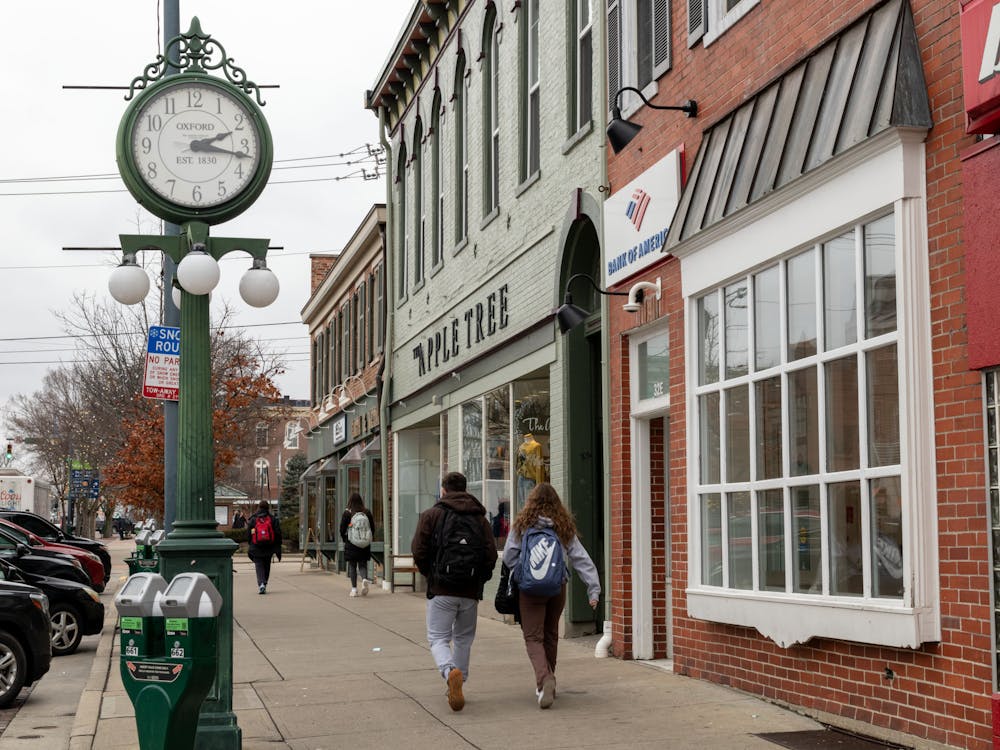This summer, the Miami University Board of Trustees agreed to contribute $1.27 million annually to support Oxford’s fire and EMS services, matching the amount proposed by Issue 2 in a levy set for a November vote. During these negotiations, another deal came to light to help prevent a lack of funding from happening again.
The fire and EMS deal was in progress when Oxford’s finance committee raised a crucial point: to secure future funding, the city would need to expand its tax base. Miami offered to allocate $270,000 of the $1.27 million towards economic development for the city, but the Oxford Fire Department required the full amount.
To address this, Oxford took decisive action and formalized a commitment to invest $270,000 annually in economic development activities. The funding aims to support various projects and initiatives that will shape Oxford’s future for years to come.
According to a June 28 meeting report from Finance and Audit Committee Chair Mark Sullivan, the shift to remote work, particularly from Miami, has impacted Oxford’s tax revenue, straining funding for fire and EMS services.
“The city and the university have formally agreed to work together on economic development strategies to grow employment in the city to lessen the negative impact of remote work and to begin growing the city’s revenue from its income tax,” according to the report.
The committee agreed and unanimously endorsed the resolution during the meeting, focusing on expanding economic opportunities in Oxford.
In an email statement to The Miami Student, the board said, “The university and the city share a mutual commitment to keeping communities safe and growing the local economy through fostering entrepreneurship and innovation, job creation, increased housing opportunities, and other efforts that will enhance and sustain the entire community.”
Seth Cropenbaker, Oxford’s economic development specialist, said he’s leading many initiatives to stimulate growth across the city.
“That [$270,000] represents the city’s budgeting towards economic development year over year,” Cropenbaker said. “That language in the agreement kind of ratifies or solidifies that.”
Cropenbaker is working with consulting firm Red Tiger Investments, local organizations and residents, to create a strategic economic development plan. The city has allocated $50,000 for the plan’s development.
“[We’re] pulling those folks together to help us analyze some ideas, some data, some information as it relates to ‘Where are the best opportunities for Oxford to solidify [and] strengthen our economy,’” Cropenbaker said.
Oxford plans to expand on its current initiatives, such as increasing housing developments — like the one in progress near Brookville Road — and making adjustments to zoning codes to encourage development.
Enjoy what you're reading?
Signup for our newsletter
Additionally, Oxford aims to expand and diversify its workforce. Cropenbaker said roughly 49% of jobs in Oxford are tied to the university, while 30% are in the service sector.
Given Oxford’s location, developing certain industries, such as manufacturing, is challenging. Cropenbaker believes the city can find a way forward by focusing on viable options such as increasing the permanent population base and fostering student entrepreneurship.
“It’s really about identifying the realities of our community,” Cropenbaker said. “[Identifying] key elements, indicators, facets of our population, location, existing businesses and then really trying to find ways to leverage those strengths rather than trying to bring up a weakness.”
Oxford’s ongoing economic initiatives include sustainability and facade grants for businesses and a revolving loan program that provides low-interest loans and gap financing to kickstart new businesses. The city also supports entrepreneurship through investments like the Lee and Rosemary Innovation College@Elm.
Other economic development projects include developing an Amtrak station and making similar investments in infrastructure.
“It’s inherent that we continue to make Oxford an interesting, attractive place that people want to be, student and non-student alike,” Cropenbaker said. “That really speaks to the long-term health, sustainability, viability of Oxford.”




